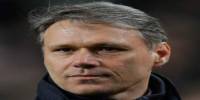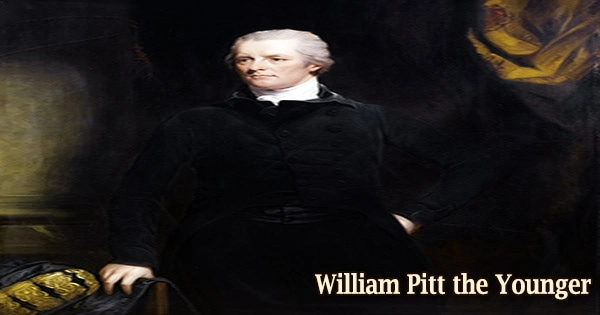Franz Beckenbauer – Soccer Player
Full name: Franz Anton Beckenbauer
Date of birth: 11 September 1945 (age 71)
Place of birth: Munich, Germany
Height: 1.81 m (5 ft 11 1⁄2 in)
Playing position: Sweeper
Early Life
Franz Beckenbauer was born on September 11, 1945, in Munich, Germany. He was a German football (soccer) player who is the only man to have both captained and managed World Cup-winning teams (1974 and 1990, respectively). Nicknamed “der Kaiser,” Beckenbauer dominated German football in the 1960s and ’70s and is arguably the country’s greatest footballer. An intelligent and graceful player, he invented the modern position of the attacking sweeper who initiates the offense from central defense with deft passes and long runs.
He led Bayern Munich to multiple club titles and played with Pelé on the New York Cosmos, but is best remembered for winning the World Cup as a player and manager. Beckenbauer helped organize the 2006 World Cup in Germany, and serves as honorary president of Bayern Munich.
Twice named European Footballer of the Year, Beckenbauer appeared 103 times for West Germany and played in three FIFA World Cups. He is one of only two men, along with Brazil’s Mário Zagallo, to have won the World Cup as a player and as a manager; he lifted the World Cup trophy as captain in 1974, and repeated the feat as a manager in 1990. He was the first captain to lift the World Cup and European Championship at international level and the European Cup at club level. He was named in the World Team of the 20th Century in 1998, the FIFA World Cup Dream Team in 2002, and in 2004 was listed in the FIFA 100 of the world’s greatest living players.
Originally a centre forward, he idolised 1954 FIFA World Cup winner Fritz Walter and supported local side 1860 Munich, then the pre-eminent team in the city, despite their relegation from the top league, the Oberliga Süd, in the 1950s. “It was always my dream to play for them” he would later confirm. That he joined the Bayern Munich youth team in 1959, rather than that of his favourites 1860 Munich, was the result of a contentious Under-14 youth tournament in nearby Neubiberg.
Today, Beckenbauer remains an influential figure in both German and international football. He led Germany’s successful bid to host the 2006 FIFA World Cup and chaired the organizing committee. He currently works as a pundit for Sky Germany and is a columnist for the tabloid Bild.
In August 2016, it was announced Beckenbauer was being investigated for fraud and money laundering as part of the 2006 World Cup.
During his playing career, Beckenbauer’s popularity was such that he was included as a character in Monty Python’s sketch “The Philosophers’ Football Match” as the sole genuine player and a “surprise inclusion” to the German team. During the match, between famous Greek and German philosophers, instead of actually playing football, all the “players” walk in circles contemplating philosophy, much to the confusion of Beckenbauer.
In a 2013 advertisement for South Korean company Samsung, Beckenbauer appeared as the manager a Galaxy XI of football players from around the globe, and hands the captain’s armband to Lionel Messi. Beckenbauer features in EA Sports’ FIFA video game series; he was included in the FIFA 15 Ultimate Team Legends.
Coaching and Playing Career
Beckenbauer made his debut for the senior club in June 1964, and as the star of a core that also featured burgeoning talents Gerd Müller and Sepp Maier, he led Bayern Munich to a level of unprecedented success. Playing the role of sweeper, Beckenbauer was expected to focus on defense; however, he revolutionized the position by leaving the backfield to help run the offense, becoming the game’s first true attacking sweeper, or “libero.”
Bayern soon became a force in the new German league, winning the German Cup in 1966–67 and achieving European success in the Cup Winners’ Cup in 1967. Beckenbauer became team captain for the 1968–69 season and led his club to their first league title.
During Beckenbauer’s tenure at Bayern Munich, the club won three league championships in a row from 1972 to 1974 and also a hat-trick of European Cup wins (1974–76) which earned the club the honour of keeping the trophy permanently.
Interestingly, since 1968 Beckenbauer, has been called Der Kaiser by fans and the media. The media called him Fußball-Kaiser (football-emperor) afterwards, soon after he was just called Der Kaiser. However, according to a report in the German newspaper Welt am Sonntag, this explanation is untrue, though very popular. According to the report, Beckenbauer fouled his opposite number, Reinhard Libuda from Schalke 04, in the cup final on 14 June 1969. Disregarding the fans’ hooting, Beckenbauer took the ball into the opposite part of the field, where he balanced the ball in front of the upset fans for half a minute. Libuda was commonly called König von Westfalen (king of Westphalia), so the press looked for an even more exalted moniker and invented Der Kaiser.
In addition to his club and individual success, Beckenbauer was a force on the international stage. Just 21 years old during the 1966 World Cup in England, Beckenbauer helped his countrymen reach the final against the host team and its legendary midfielder, Bobby Charlton, before they came apart in extra time following a controversial English goal.
In 1977, Beckenbauer accepted a lucrative contract to play in the North American Soccer League with the New York Cosmos. He played with the Cosmos for four seasons up to 1980, and the team won the Soccer Bowl on three occasions (1977, 1978, 1980).
Beckenbauer retired after a two-year spell with Hamburger SV in Germany (1980–1982) with the win of the Bundesliga title that year and one final season with the New York Cosmos in 1983. In his career in domestic leagues, he made 587 appearances and scored 81 goals.
After the 1977 season, Beckenbauer joined Brazilian superstar Pelé and Italian striker Giorgio Chinaglia on the New York Cosmos, and helped them win three North American Soccer League titles in the next four years. Beckenbauer returned to Germany to play for Hamburg for two years, then spent one more season with the Cosmos before retiring.
Beckenbauer won 103 caps and scored 14 goals for West Germany. He was a member of the World Cup squads that finished runners-up in 1966, third place in 1970, and champions in 1974, while also being named to the tournament all-star team in all three editions. He also won the 1972 European Football Championship and finished as runners-up in the 1976 edition. Beckenbauer’s first game for the national team came on 26 September 1965.
Beckenbauer became captain of the national side in 1971. In 1972, West Germany won the European Championship, beating the Soviet Union 3–0 in the final.
In the 1976 competition, West Germany again reached the final, where they lost on penalties to Czechoslovakia. Beckenbauer was named in the Team of the Tournament.
Beckenbauer became the first captain to lift the new FIFA World Cup Trophy after Brazil had retained the Jules Rimet Trophy in 1970. This also gave West Germany the distinction of being the first European national team to hold both the European Championship and World Cup titles simultaneously (two other countries have done it since: France in 2000, and Spain in 2010).
Beckenbauer retired from international football in 1977, at the age of 31, following his move to New York Cosmos.
Senior career
Years Team Apps (Gls)
1964–1977 Bayern Munich 439 (64)
1977–1980 New York Cosmos 80 (17)
1980–1982 Hamburger SV 28 (0)
1983 New York Cosmos 25 (2)
Total 572 (83)
National team
1964 West Germany Youth 3 (3)
1965 West Germany B 2 (0)
1965–1977 West Germany 103 (14)
Despite having no managerial experience, Beckenbauer was tapped to replace Jupp Derwall as head of the West German national team in July 1984. Amazingly, he guided a squad with modest expectations to the 1986 World Cup final, which ended with a narrow 3-2 loss to Argentina.
In 1990, before the German reunification, Beckenbauer managed the last German team without East German players in a World Cup, winning the final 1–0, against Argentina, in a rematch of the previous World Cup final. Beckenbauer is one of two men (with Mario Zagallo) to have won the Cup as player and as manager, and he is the only man to have won the title as team captain as well as manager.
Beckenbauer then moved into club management, and accepted a job with Olympique de Marseille in 1990 but left the club within one year. Marseille eventually won the 1990–91 French championship and ended runner-up of the 1990–91 European Cup.
From 28 December 1993 until 30 June 1994, and then from 29 April 1996 until 30 June of the same year, he managed Bayern Munich. His brief spells in charge saw him collect two further honours – the Bundesliga title in 1994 and the UEFA Cup in 1996.
After leading the club to a 1996 UEFA Cup victory, he became its president for two years. Beckenbauer then took over as vice president of the German Football Association, and with Germany selected to host the 2006 World Cup, he served as chairman of its organizing committee and the public face of the world-renowned sporting event.
Beckenbauer was named Honorary President of Bayern Munich in November 2009. An icon in his home country, he is admired as one of the greatest all-around players in soccer history.
Personal Life
thlete Franz Anton Beckenbauer was born on September 11, 1945, in Munich, West Germany. He was the second son of postal-worker Franz Beckenbauer, Sr. and his wife Antonie. He grew up in the working-class district of Giesing and, despite his father’s cynicism about the game, started playing football at the age of nine with the youth team of SC Munich ’06 in 1954.
Beckenbauer has been married three times and has five children, one of whom, Stephan, was a professional footballer, who died after a long illness on 1 August 2015, at the age of 46. After appearing in an ad for a big mobile phone company, Beckenbauer specifically requested the number 0176 / 666666 for his mobile phone. However, he soon was flooded with phone calls by men who thought it was a phone sex number (in German, “6” translates to “sechs”, very close to the word sex).
Honours
Player
Bayern Munich
- Bundesliga: 1968–69, 1971–72, 1972–73, 1973–74
- DFB-Pokal: 1965–66, 1967–68, 1968–69, 1970–71
- European Cup: 1973–74, 1974–75, 1975–76
- UEFA Cup Winners’ Cup: 1966–67
- Intercontinental Cup: 1976
Hamburger SV
- Bundesliga: 1981–82
New York Cosmos
- North American Soccer League: 1977, 1978, 1980
- Trans-Atlantic Cup: 1980, 1983
West Germany
- FIFA World Cup: 1974
- UEFA European Championship: 1972
Manager
West Germany
- FIFA World Cup: 1990
Marseille
- Ligue 1: 1990–91
Bayern Munich
- Bundesliga: 1993–94
- UEFA Cup: 1995–96
Individual
Player
- Ballon d’Or: 1972, 1976
- German Footballer of the Year: 1966, 1968, 1974, 1976
- Regionalliga Süd: 1965
- FIFA World Cup Best Young Player Award: 1966
- FIFA World Cup Bronze Boot: 1966
- FIFA World Cup All-Star Team: 1966, 1970, 1974
- FIFA XI: 1968
- Bravo Otto – Bronze award: 1974, 1975
- Bravo Otto – Silver award: 1976
- FIFA World Cup Silver Ball: 1974
- NASL Most Valuable Player Award: 1977
- FIFA Order of Merit: 1984
- FIFA World Cup All-Time Team: 1994
- UEFA Euro Team of the Tournament: 1972, 1976
- World Team of the 20th Century: 1998
- FIFA World Cup Dream Team: 2002
- FIFA Centennial Player and Football Personality Award: 2004
- FIFA 100: 2004
- Laureus Lifetime Achievement Award: 2007
- IFFHS Universal Genius of World Football: 2007
- Golden Foot: 2010, as football legend
- Marca Leyenda: 2012
- FIFA Presidential Award: 2012
- UEFA President’s Award: 2013
- World Soccer Greatest XI of all time: 2013
- UEFA Euro All-time XI: 2016
Manager
- World Soccer Awards Manager of the Year: 1990
Civil
- Cross of the Order of Merit of the Federal Republic of Germany: 1976
- Bavarian Order of Merit: 1982
- Cross of Merit 1st Class of the Federal Republic of Germany: 1986
- Honorary Golden Coin of the City of Munich: 1995
- Honorary Doctor of the National Sports Academy: 2004
- Commanders’ Cross of Merit of the Federal Republic of Germany: 2006
- Lower Saxon Merit 1st Class: 2008
- Order of Merit of the State of North Rhine-Westphalia: 2009
- Honorary consul of the Republic of Kosovo: 2011
















